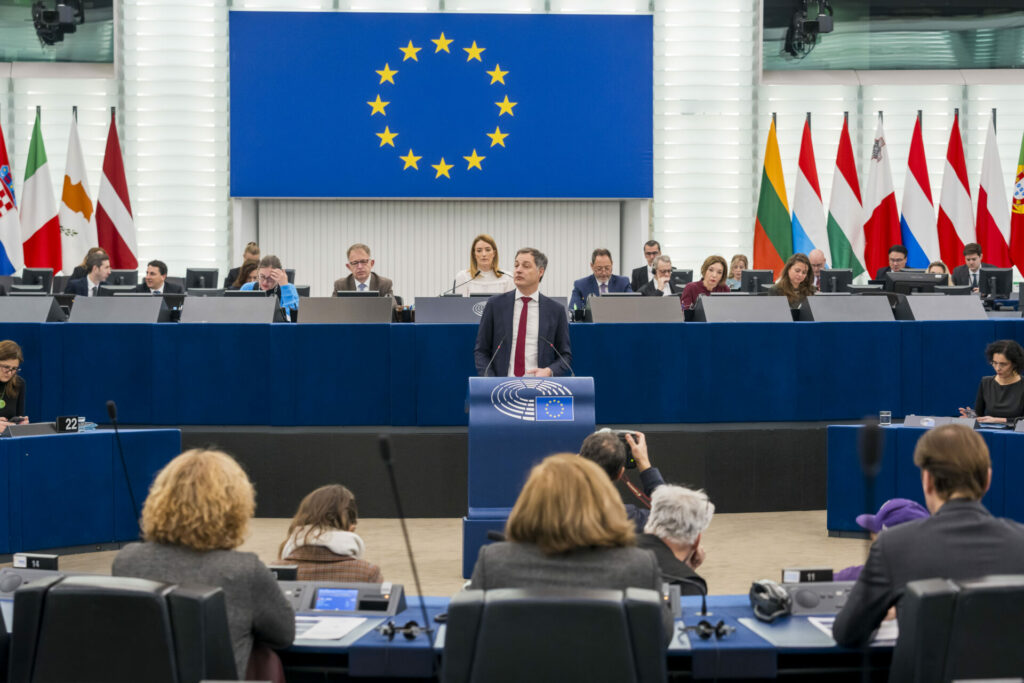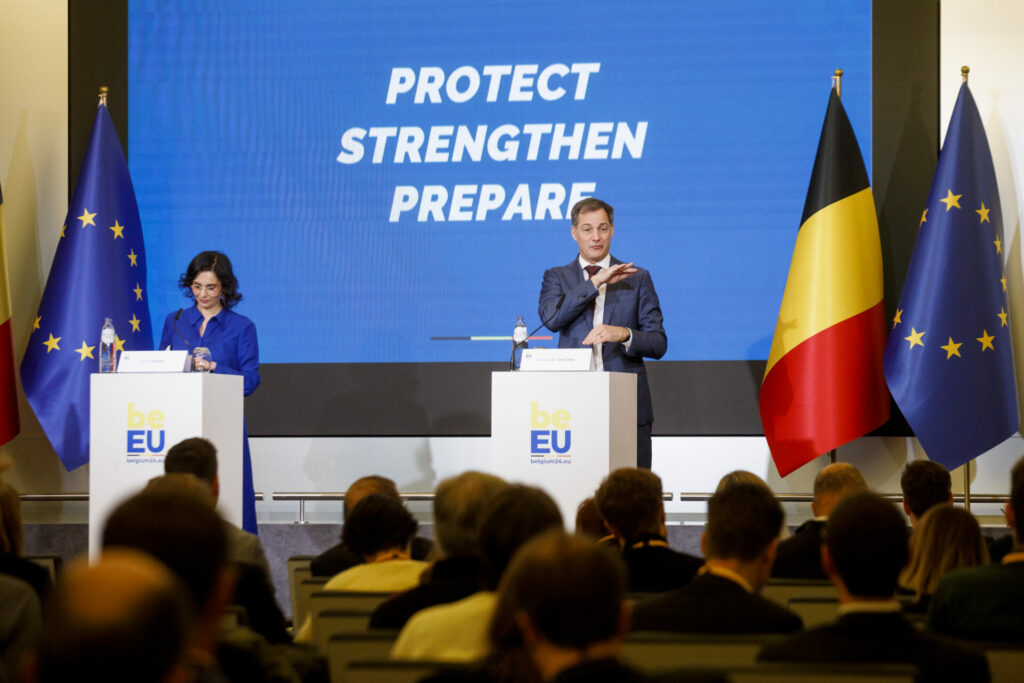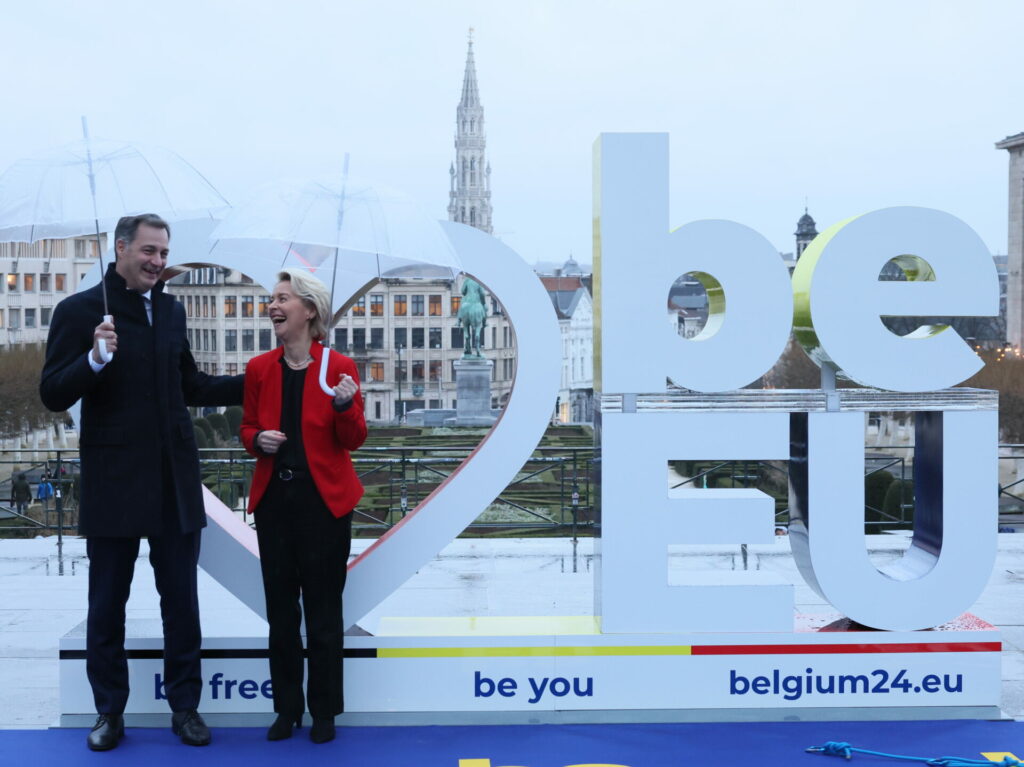Halfway through Belgium's Presidency of the Council of the EU, it can only be said that the country has been trying and succeeding in reaching as many agreements as possible before the European elections in early June. "So far, so good," said Prime Minister Alexander De Croo.
Last December, Belgian Prime Minister Alexander De Croo announced that the main objective of the Belgian Presidency of the Council of the European Union was "to achieve results." In other words: to reach as many agreements on the Commission's legislative proposals as possible between the Council and the European Parliament, so they can be adopted in time before the European elections in June.
Halfway through the Belgian Presidency, it can only be concluded that De Croo is succeeding in his aim: since 10 January, some 50 agreements have been reached in trilogues (the Council Presidency, representatives of the European Parliament and the Commission).
On top of those deals also comes the definition of some ten common positions between the 27 Member States, which will serve as a basis for negotiations with the next European Parliament. "So far, so good," De Croo said last week. An unnamed Belgian source told La Libre that it comes down to about one agreement a day, "even if sometimes there have been seven in one day."
Seven days a week, 24 hours a day
The balance is especially good when considering that the Belgian Presidency had to deal with an additional constraint with the 2019-2024 European legislature coming to an end in early June – giving it only ten weeks to find agreements between the institutions.
In practice, this means time had to be allowed for the reached agreements to first be polished up by legal experts and translated into the EU's 24 languages, so they can be formally adopted no later than the final plenary session of the European Parliament at the end of April.
Therefore, the Belgian Presidency went through the 150 draft directives and regulations and focused its attention on the texts they considered to have the highest chance of reaching a political agreement in February, with a final deadline of mid-March for the most important dossiers.
"We were under severe time constraints, but also in terms of human and material resources," the same Belgian told the newspaper. During this period, the Belgian Presidency was at work seven days a week, sometimes 24 hours a day.

Credit: Belgian Presidency of the Council of the EU
On 20 March, Commission Vice-President Maroš Šefčovič praised Belgium's performance in this "co-legislative sprint," saying that "not a day or an hour of negotiations can be missed to conclude so many dossiers." Between 8 January and 15 March, the Presidency organised around 100 trilogues in Brussels and Strasbourg and over 1,000 technical meetings.
On subjects such as the reform of budgetary rules, the revision of the Schengen Borders Code, the implementation of the Migration Pact, the European Health Data Space, and legislation on the reduction of packaging and packaging waste, the relevant Belgian ministers put in a lot of hard work.
However, the vast majority of the dossiers were already cleared, if not finalised, at the level of the Committee of Permanent Representatives of the EU-27 (Coreper) – ahead of these ministerial meetings.
"In this country, we tend to beat ourselves up about the fractured way we often work. But in the Committee of Permanent Representatives, we have some very great professionals who have a perfect grasp of the intricacies of the European institutions and know how to conduct negotiations," said Brussels Minister Alain Maron (Ecolo), who chairs the Environment Council.
The Belgian way
"Belgians are quick to react. When things get stuck, they come up with compromise proposals within two days. They have recovered texts that we thought had been lost," a source in the European Parliament told La Libre, referring to the legislation on platform workers and that on corporate duty of care with regard to sustainability, for example.
The legislation on platform workers' rights was even approved by a qualified majority without the votes of France or Germany, the source pointed out, while adding that the EU's two largest countries "have not been the most accommodating partners" in recent months.
As the Council President, Belgium is expected to act as an "honest broker" for the interests of all sides, rather than trying to push its own agenda – a position that fits the country known for the compromis à la belge like a glove.
In addition to the Belgian way of negotiations, this neutral position also works well, as the absence of internal agreements within the Federal level or between different government levels often means that the country itself does not have a unified position to defend. Still, all Belgian players are insistent on one point: common position or not, all the country's authorities are pulling together to make this Presidency a success.

Foreign Minister Hadja Lahbib and Prime Minister Alexander De Croo presented the Belgian Presidency. Credit: Belga/Hatim Kaghat
The limited time frame has also worked in the Presidency's favour, with the Parliament being inclined to ease off at the end of the road, "because MEPs want to reach agreements on issues that they have been working on for months or even years."
The Commission, too, wants to see as many of its proposals as possible adopted. "Basically, it is the Council that is in the least a hurry, because it is the only institution whose work does not stop during the election period," the European source pointed out.
As it will take the European institutions some time to get back up and running after the elections, everyone was aware of the importance of concluding (or making progress on) as many dossiers as possible now, before a period of limbo.
Behind the scenes, however, another factor plays an important role in trying to reach agreements while Belgium is still holding the Presidency: from 1 July, the role will be passed on to the unpredictable and Eurosceptic Hungary, with its controversial Prime Minister Viktor Orbàn.

